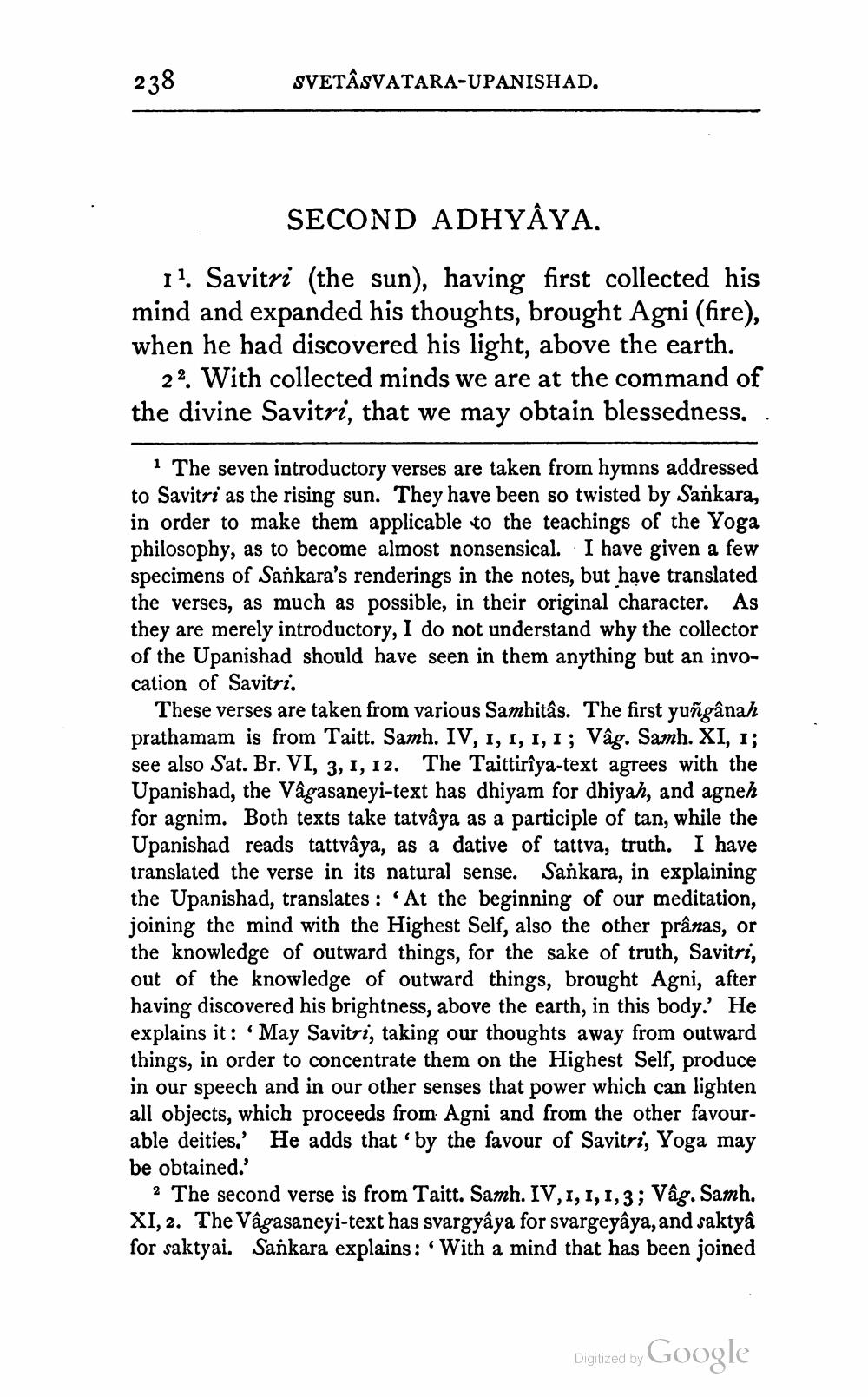________________
238
SVETASVATARA-UPANISHAD.
SECOND ADHYAYA. 11. Savitri (the sun), having first collected his mind and expanded his thoughts, brought Agni (fire), when he had discovered his light, above the earth.
22. With collected minds we are at the command of the divine Savitri, that we may obtain blessedness..
1 The seven introductory verses are taken from hymns addressed to Savitri as the rising sun. They have been so twisted by Sankara, in order to make them applicable to the teachings of the Yoga philosophy, as to become almost nonsensical. I have given a few specimens of Sankara's renderings in the notes, but have translated the verses, as much as possible, in their original character. As they are merely introductory, I do not understand why the collector of the Upanishad should have seen in them anything but an invocation of Savitri.
These verses are taken from various Samhitâs. The first yuñgânah prathamam is from Taitt. Samh. IV, 1, 1, 1, 1; Vâg. Samh. XI, 1; see also Sat. Br. VI, 3, 1, 12. The Taittirîya-text agrees with the Upanishad, the Vâgasaneyi-text has dhiyam for dhiyah, and agneh for agnim. Both texts take tatvậya as a participle of tan, while the Upanishad reads tattvậya, as a dative of tattva, truth. I have translated the verse in its natural sense. Sankara, in explaining the Upanishad, translates : 'At the beginning of our meditation, joining the mind with the Highest Self, also the other prânas, or the knowledge of outward things, for the sake of truth, Savitri, out of the knowledge of outward things, brought Agni, after having discovered his brightness, above the earth, in this body.' He explains it: May Savitri, taking our thoughts away from outward things, in order to concentrate them on the Highest Self, produce in our speech and in our other senses that power which can lighten all objects, which proceeds from Agni and from the other favourable deities.' He adds that by the favour of Savitri, Yoga may be obtained.'
2 The second verse is from Taitt. Samh. IV,1,1,1,3; Vâg. Samh. XI, 2. The Vâgasaneyi-text has svargyâya for svargeyâya, and saktyâ for saktyai. Sankara explains: With a mind that has been joined
Digitized by Google




